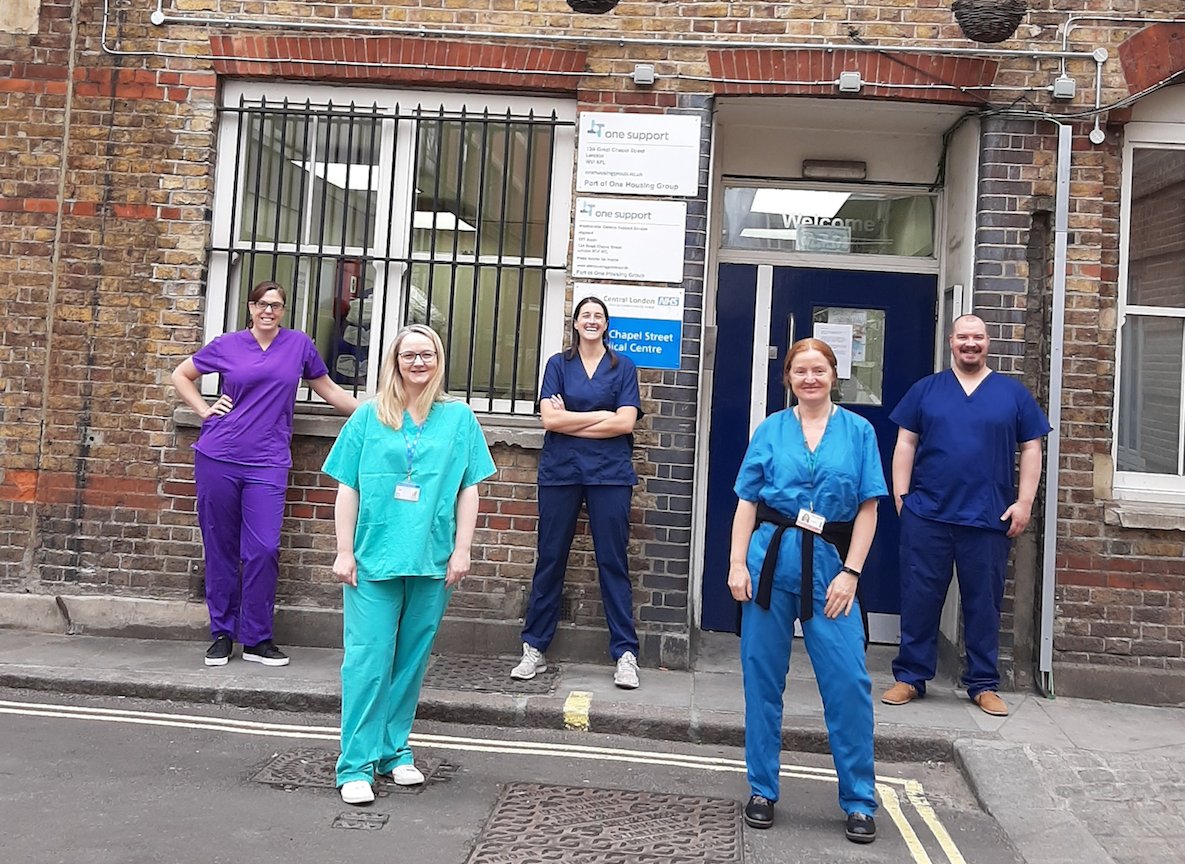Charities Crisis and Pathway to merge to better tackle homelessness and health inequalities
The national homelessness charity Crisis and Pathway, the homeless healthcare charity, are to merge in a bid to tackle the stark health inequalities experienced by people who are homeless and ensure that the healthcare system plays its part in ending homelessness across the UK.

The merger, which will see the charities maintain their own operations and existing identities, will build on the existing collaboration between the two organisations and make them a stronger, more united voice in their mission to address the health and support needs of people experiencing homelessness.
The two charities are coming together at a time when the coronavirus pandemic has highlighted how essential it is that homelessness is seen as a public health issue. Meanwhile opportunities to resolve and prevent homelessness through the healthcare system are routinely missed. The most up to date figures for 19/20 show that 2,950 people were discharged from either a general or psychiatric hospital with no home to go to.
Pathway and Crisis will work together to ensure that the health service, through all its contacts with people experiencing homelessness, fulfils its potential in actively resolving homelessness. The two charities will continue to advocate for policy responses to homelessness that save lives, reduce health inequalities, and promote positive health outcomes for people who are homeless.
The merger, which has been approved by both Boards of Trustees, aims to:
- Increase the number of dedicated hospital teams that work with patients who are homeless across the country, to ensure they receive better quality care and are not discharged from hospital into homelessness.
- Work with the NHS and wider health and social care services to help them prevent homelessness through evidence-based programmes such as Housing First and Critical Time Interventions that will ensure people get the support they need to leave homelessness behind for good.
- Campaign for the changes needed to save lives and demonstrate the positive health outcomes of immediate access to good quality emergency accommodation
- Fill in knowledge gaps in inclusion health and homelessness research, including how to improve services, narrow health inequalities, assess the impact of government policies and the solutions needed to end homelessness for good.
The services both charities provide will continue unchanged for the time being. Longer-term, the two charities will look to enrich their services by combining expertise – for instance, Pathway teams being in place where Crisis Skylight centres are based.
Jon Sparkes, Crisis chief executive, said: “Having worked together successfully for many years, this merger is an exciting opportunity for both charities to combine our expertise, resources and voices at a time when people experiencing homelessness need us more than ever.
“The pandemic has further exposed how dangerous it can be for our health when we don’t have somewhere safe to call home, yet far too often people are discharged from hospitals with nowhere to go. We are determined to see this change and will be working together to ensure that the NHS and wider health and social care system plays its part in helping to achieve our shared goal of ending homelessness for good.”
Alex Bax, Pathway chief executive, added: “Pathway was founded on the belief that the NHS has a huge part to play in preventing and ending homelessness. By joining together with Crisis we will be able to do even more to support front-line NHS colleagues, build the skills and knowledge of NHS staff, and show how health, housing and care services working together is the best response to homelessness. Leading organisations from across the homelessness and health sector back our merger, believing it will bring real change to people facing homelessness now and in the future.”
Richard Murray, chief executive of The King’s Fund, said: “I am pleased to welcome this new relationship between Pathway and Crisis. Pathway have played such an important role in helping the NHS improve services for homeless people and bringing their skills and experience together with Crisis offers real opportunities to cement and extend their impact. This should be a win-win for both organisations and the people they serve.”
Lord Victor Adebowale, chair, NHS Confederation, commented: “This is excellent news. Over the last ten years Pathway has built its credibility within the NHS, bringing the care and treatment of homeless patients into the spotlight and focussing attention on the most extreme health inequalities that we face.
“At the same time Crisis has built the evidence base to show how ending homelessness in the UK is achievable. I can see huge value now in the two charities working together, helping the NHS with practical service improvements for homeless patients, while campaigning for wider structural societal and system change.”
Professor Andrew Goddard, President of the Royal College of Physicians, said: “The RCP welcomes the new partnership as Pathway has played a key role in putting the health of homeless people firmly on the agenda of the NHS. Crisis is to be commended for providing the stability that will make sure this work continues.
“The impact of the pandemic on charities has been significant, but it is partnerships such as this that demonstrate our resilience. There are many things on which we can and should work together, while recognising each other’s independence. We have no doubt this new relationship will bear significant fruit.”









